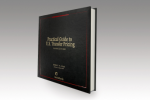OECD releases “transfer pricing comparability data and developing countries” for comment
Posted by William Byrnes on March 16, 2014
On Tuesday the OECD released Transfer Pricing Comparability and Developing Countries (March 11, 2014). The OECD is seeking stakeholder and public comment until April 11, 2014 and will publicly discuss the contents in two parallel sessions on March 28, 2014, the last day of the Global Forum on Transfer Pricing. This last day of the Global Forum meeting will be held in conjunction with the Task Force on Tax & Development. Written comments should be sent to TransferPricing@oecd.org.
Transfer Pricing Comparability and Developing Countries sets out and briefly discusses four possible approaches to addressing the concerns over the lack of data on comparables that have been expressed by developing countries.
- Expanding access to data sources for comparables, including steps to improve the range of data contained in commercial databases, expand developing country access to such databases, and improve access to comparables data in developing countries with a significant number of sizeable independent companies.
- More effective use of data sources for comparables, including guidance or assistance in the effective use of commercial databases, the selection of foreign comparables, whether and how to make adjustments to foreign comparables to enhance their reliability, and alternative approaches to finding comparables.
- Approaches to identifying arm’s length prices or results without reliance on direct comparables, including guidance or assistance in making use of proxies for arm’s length outcomes, the profit split method, value chain analysis, and safe harbours, an evaluation of the impact, effectiveness and compatibility with the arm’s length principle of approaches such as the so called “sixth method”, which is increasingly prevalent particularly in developing countries in Latin America and Africa, and a review of possible anti-avoidance approaches.
- Advance pricing agreements and mutual agreement proceedings, including a review of developing country experiences with the pros and cons of advance pricing agreements and negotiations to resolve transfer pricing disputes, as well as guidance or assistance with respect to mutual agreement proceedings.
Transfer pricing expert Dr. Gary Stone of PriceWaterhouseCoopers has > analyzed < the OECD paper, available at http://www.pwc.com/en_GX/gx/tax/newsletters/pricing-knowledge-network/assets/pwc-oecd-comparability-data-developing-countries.pdf Dr. Stone is the global leader of the Transfer Pricing Group of PricewaterhouseCoopers (PwC). Dr. Stone is based in Chicago and has directed and performed numerous analyses of intercompany pricing and economic valuation issues for Fortune 500 size companies. Dr. Stone is a contributing co-author to Lexis’ Practical Guide to U.S. Transfer Pricing.

Lexis’ Practical Guide to U.S. Transfer Pricing (William Byrnes & the late Robert Cole (2013)) is designed to help multinationals cope with the U.S. transfer pricing rules and procedures, taking into account the international norms established by the Organisation for Economic Co-operation and Development (OECD). It is also designed for use by tax administrators, both those belonging to the U.S. Internal Revenue Service and those belonging to the tax administrations of other countries, and tax professionals in and out of government, corporate executives, and their non-tax advisors, both American and foreign.
The U.S. rules are presented along with ideas on how to apply them in a common-sense fashion in a multi-jurisdictional world. A few of the highlights in the latest update to the treatise include:
- The most important development in U.S. transfer pricing in the year ended in July 2013 is the strengthening of the IRS’s capability to enforce the U.S. transfer pricing rules.
- We examine Transfer Pricing Operations’ three groups: the Advance Pricing and Mutual Agreement group (APMA), the Transfer Pricing Practice, and the International Practice Networks (IPNs).
- We note the 2014 budget proposal, carried over from 2013, of the Obama administration limiting the shifting of income through intangible property transfers, which would expand the scope of intangible property for purposes of IRC Sections 367(d) and 482 to include ”workforce in place, goodwill, and going concern value.”
- We discuss the new ”Rapid Appeals Process,” which is available for controversies that have arisen in an LB&I audit. It contemplates that Appeals, the examination team, and the taxpayer will discuss the case jointly in a single preopening conference in an effort to resolve the outstanding issues before the case is considered further by Appeals.

Leave a comment